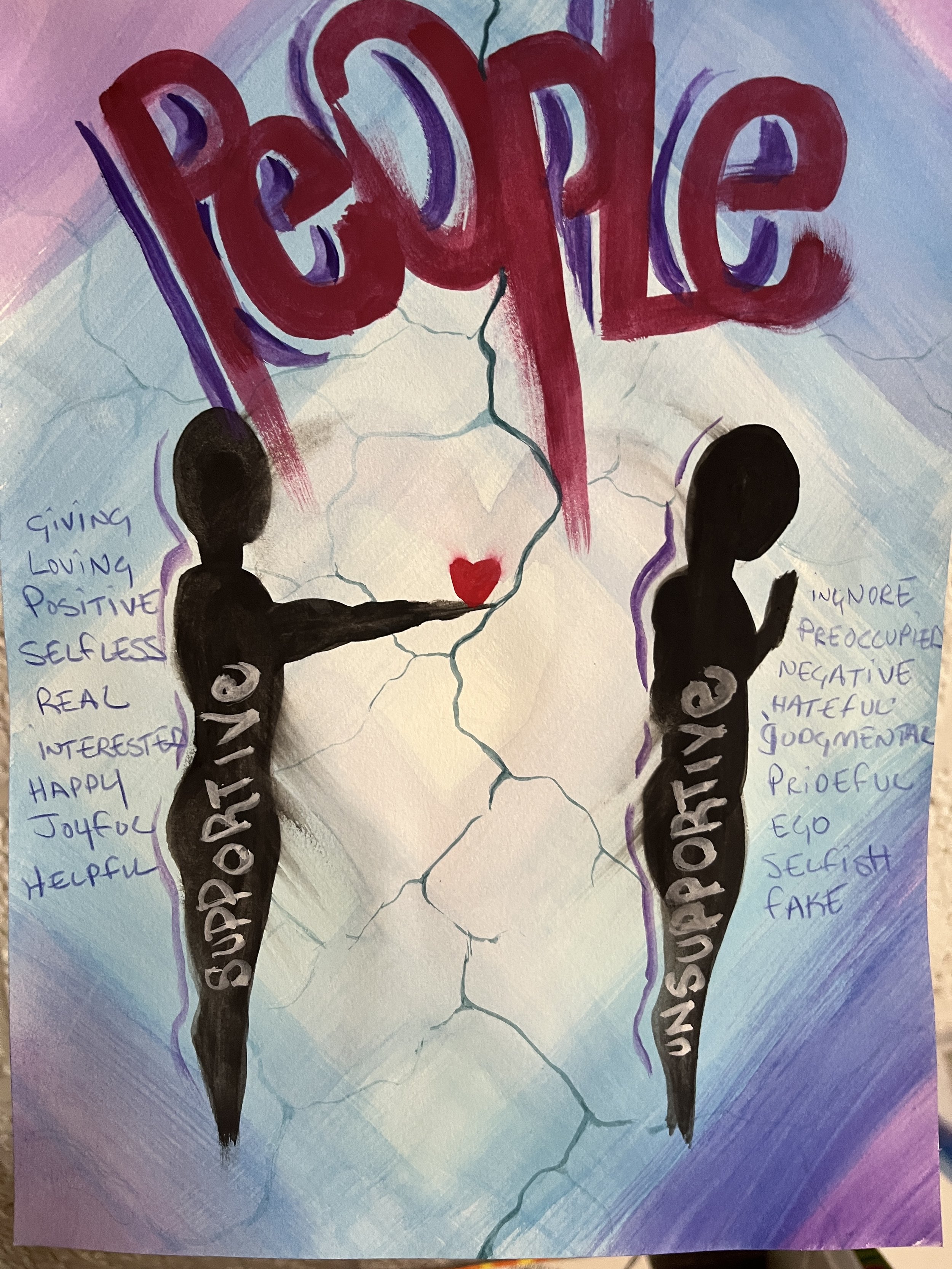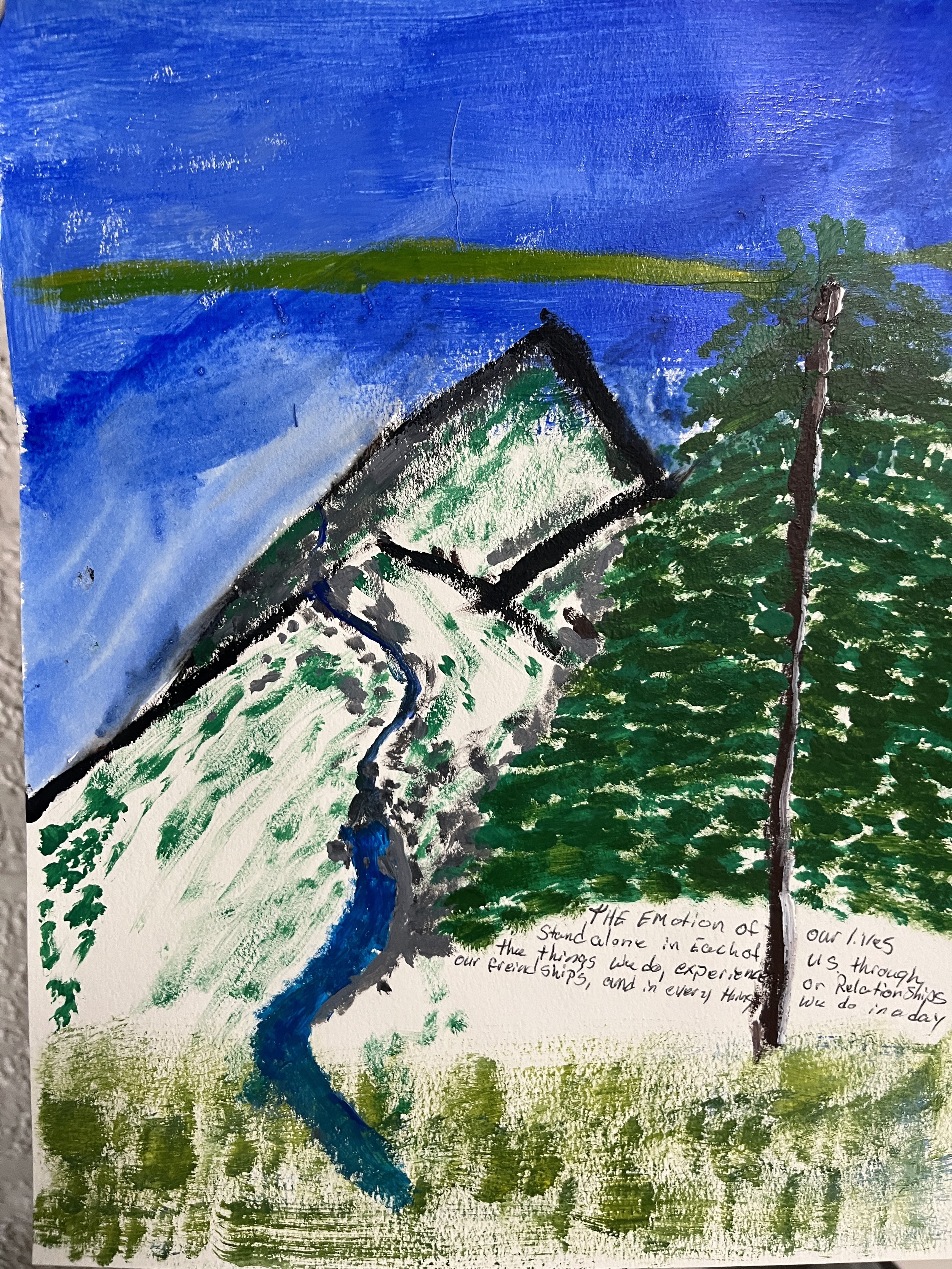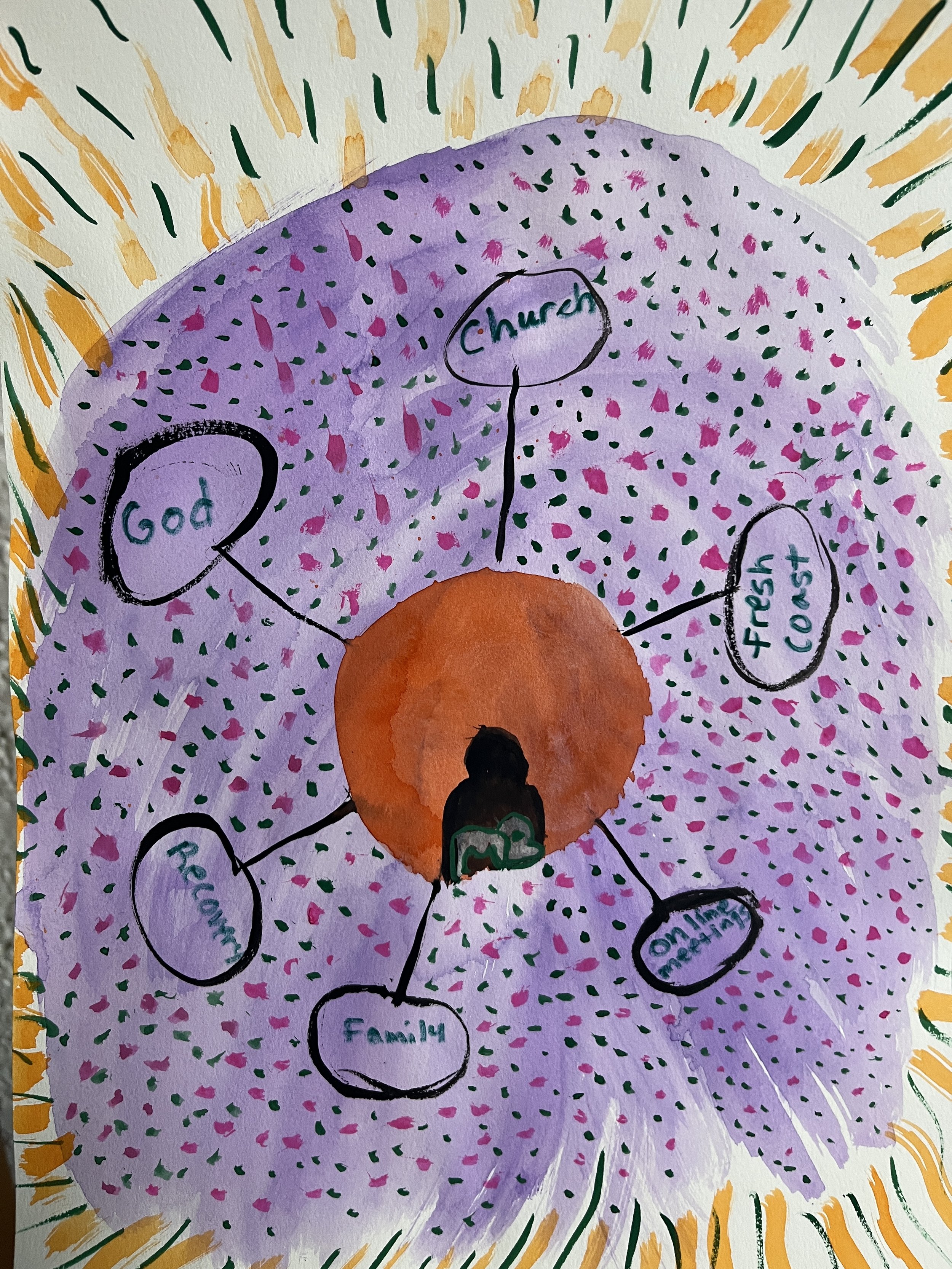The benefits of art for recovery
Participating in the creative process can be highly beneficial for those in recovery. Here are several ways in which art can be helpful:
Expression of Emotions: Art provides a non-verbal outlet for you to express emotions, thoughts, and experiences that may be difficult to put into words. This can be particularly helpful if you find it challenging to communicate verbally.
Process Trauma: Guided art allows you to explore and process traumatic experiences in a safe and controlled environment. Through creative expression, you can gain insights into your feelings and begin to make sense of your past.
Empowerment and Control: Creating art provides a sense of control and empowerment. This is especially important if you feel overwhelmed or helpless in your recovery journey.
Self-Reflection/Self Care: Engaging in art can promote self-reflection and self-awareness. It encourages you to look inward and gain a deeper understanding of yourself, your triggers, and your strengths.
Stress Reduction: Engaging in art can be meditative and calming, reducing stress and anxiety levels. Focusing on the creative process allows you to temporarily shift your focus away from your struggles.
Building Coping Skills: Art can help you develop healthy coping mechanisms. It provides an alternative to destructive behaviors and offers a constructive way to deal with difficult emotions.
Enhancing Self-Esteem: Accomplishing a creative task can boost self-esteem and confidence. Success in art-making can lead to a sense of achievement and pride.
Communication and Social Skills: If you struggle with verbal communication, art can serve as a bridge. It can facilitate communication, especially in group therapy settings, where verbal expression might be challenging.
Integration of Mind and Body: Art engages both the mind and body in the creative process. This holistic approach can be particularly effective in addressing the interconnectedness of mental, emotional, and physical well-being.
Join our ärt THerəpē group on Tuesdays and create!



